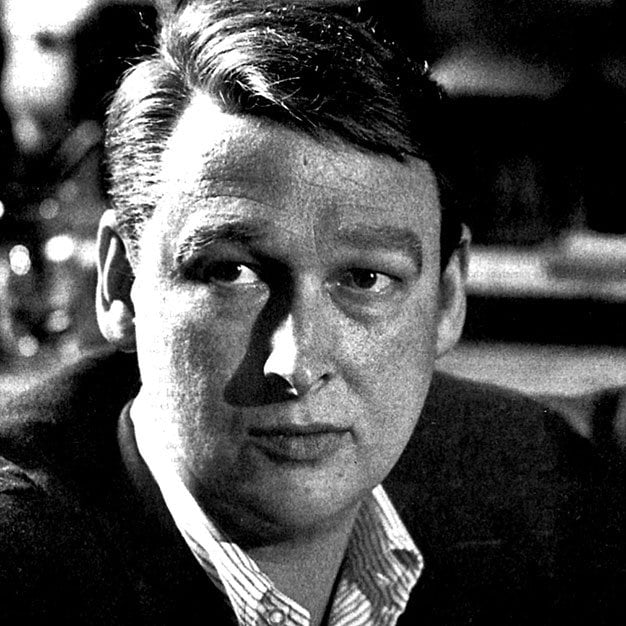
The news of Mike Nichols’s death spread across Twitter this morning with a sort of communal sigh. Dying at 83 isn’t shocking, but I suspect we all just thought Nichols would chug along forever.
That was the sort of career he had. After defining himself as an especially perceptive satirical sketch comic (along with his invaluable partner Elaine May), Nichols receded from performance and became a filmmaker. It was a reinvention that makes a lot of sense, in the rear view both his films and his comedy take great pleasure in the inherent, unavoidable contradictions of human behaviour.
But the way he made the transition? Directing Elizabeth Taylor and Richard Burton in a gripping adaptation of Edward Albee’s harrowing stage play Who’s Afraid Of Virginia Woolf? Well, that took a little nerve.
Nichols’s next feature, The Graduate, took a little more. If Virginia Woolf took on the specific issues of east coast academics, The Graduate left the Ivy League and went west, following its newly matriculated hero (Dustin Hoffman, in a role famously conceived for someone more like Robert Redford) back home to Los Angeles, where he falls into both a state of depression and the bed of a family friend (Anne Bancroft). On paper, this is an ugly story about some pretty awful people, but Nichols directs it gently and with considerable soul, tracking Benjamin’s odyssey with the music of Simon and Garfunkel and framing the characters’ gorgeous surroundings as a glossy playground that’s just starting to succumb to black mould.
Nichols won an Oscar for directing The Graduate, which made him the go-to guy for American cultural satire and likely gave him the juice to mount a film adaptation of Joseph Heller’s Catch-22. The movie’s a mess, as any attempt to adapt Catch-22 would have to be, but it’s a mess of fascinating ideas, the work of a filmmaker who’s caught hold of the pure madness at the core of his source text. (Nichols discussed those ideas at length with Steven Soderbergh on the DVD’s magnificent audio commentary, which should be required listening for any idiot who thinks Catch-22 might one day be made into a satisfying motion picture.)
The failure of Catch-22, and the success of Nichols’s immediate follow-up, the intimate and uncomfortable Jules Feiffer dramedy Carnal Knowledge, nicely encapsulates the contradiction of his career: Mike Nichols was not so good at big, ambitious movies, but there was no one better at excruciating intimacy.
Carnal Knowledge – which stars Jack Nicholson and Art Garfunkel as best friends incapable of building functional relationships with the women in their lives (Ann-Margret, Candice Bergen) – is an excoriating look at the male id at the end of the 60s it tacks in the same uncomfortable direction of The Graduate and goes somewhere even darker. But Nichols’s attempts to branch out – with the ridiculous sci-fi thriller The Day Of The Dolphin, the period farce of The Fortune, the allegorical horror of Wolf and the sci-fi dating comedy What Planet Are You From? – are so terrible as to defy description. (Never heard of The Fortune, his stupefying 20s caper picture with Jack Nicholson and Warren Beatty? That’s probably because it was so badly received its studio buried it for almost 40 years.)
That said, when Nichols was in the zone, he was untouchable. Silkwood, with its fantastic naturalistic performances by Meryl Streep, Kurt Russell and Cher Working Girl and The Birdcage, big studio comedies that keep the focus tight and intimate Heartburn and Postcards From The Edge, fictionalized autobiographies that satisfy even if you’ve never heard of Nora Ephron or Carrie Fisher.
With Primary Colors, he finally pulled off the heavily intellectualized satire that eluded him on Catch-22 – though everyone was too busy talking about John Travolta and Emma Thompson’s performances as Not Bill Clinton and Not Hillary Clinton to notice. He’d reunite with Thompson for a phenomenal HBO production of Margaret Edson’s play Wit in 2001, an early step towards legitimizing American cable as an artistic force – and the start of a collaboration that produced Nichols’s remarkable adaptation of Tony Kushner’s Angels In America for the channel.
The success of Angels In America seemed to revitalize Nichols, who got back into features with Closer – an obvious lure being the echoes of Carnal Knowledge in Patrick Marber’s stage play – and Charlie Wilson’s War, a weak political comedy that still managed to offer fun roles for Tom Hanks, Philip Seymour Hoffman and Julia Roberts.
Actors always responded to Nichols, perhaps not surprisingly after all, he’d started as a performer himself, and always seemed to know how to bring out an actor’s best qualities. Meryl Streep did some of her best work for him – she didn’t win Oscars for Silkwood or Heartburn or Postcards, but those performances rank among her best – and his collaborations with Thompson (who also turns up in Angels In America, along with Streep) gave that actor the chance to do modern, considered and deeply human work that exists a world away from the period projects with which she was associated in the 90s.
He never stopped working, either directing on Broadway – most recently a revival of Harold Pinter’s Betrayal starring real-life couple Rachel Weisz and Daniel Craig – or developing new movie projects. At the time of his death, he was reportedly working on another feature project with Thompson I know nothing about it, but I really would have liked to see it. They brought out the best in each other.












